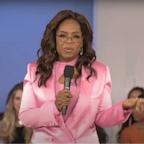Trying to learn how learning works
— -- Is our children learning? Bad grammar, but still a good question.
Long before President George W. Bush posed his ungrammatical query on the 2000 campaign trail, debate simmered over school testing, vouchers and teaching. And just like in a lot of modern debates, scientists have quietly tackled the underlying questions, offering up new tools, new approaches and even a new discipline, while the political folks argue away.
"New insights from many different fields are converging to create a new science of learning that may transform educational practices," begins a report led by Andrew Meltzoff of the University of Washington in Seattle. The review in the current Science magazine makes the case for psychologists, neuroscientists, roboticists and teachers combining to quietly create a new field that combines everything from how brains grow to how classrooms work into a new kind of learning research.
For example, a companion study in the current Science by John Gabrieli of the Massachusetts Institute of Technology, illustrates how neuroscience and education researchers have teamed up to tackle dyslexia, a difficulty with reading and vocabulary that afflicts 5% to 17% of children. Behavioral and brain measures can now identify dyslexic tendencies in infants, and lead to teaching that can "prevent dyslexia from occurring in the majority of children who would otherwise develop dyslexia," according to the study.
Politicians and educators increasingly worry about learning for all children, citing tests like the 2007 Trends in International Mathematics and Science Study (TIMSS), which found U.S. 4th and 8th graders trailing some Asian and European peers in science and math. In April, President Obama called on National Academy of Sciences members to "think about new and creative ways to engage young people in science and engineering" and announced an initiative to raise those TIMSS scores.




